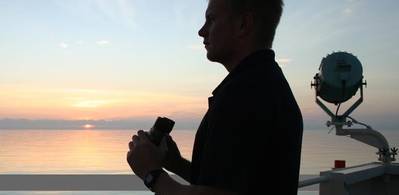Avoiding Temptation at Sea
The recent deaths of two security operatives on board the Maersk Alabama highlighted an acute concern amongst the shipping community: the threat of substance abuse. That there were narcotics found in the same cabin as the individuals concerned is even more worrying, but nothing new. The area of particular concern though is the likely use of drugs and alcohol by embarked security personnel with access to weapons. Ambrey received a flurry of enquiries from clients following this incident, seeking reassurance about drug and alcohol policies for embarked teams.
Like every shipowner, manager and charterer, Ambrey has a detailed drug and alcohol policy, with 10% random testing per year throughout the company. We conduct testing of both our staff and operatives and have had no incidents of drug misuse on board a vessel, nor have any of our operatives been specifically tested at the instigation of the Master. Overseas, Ambrey empower their Senior Team Leaders to spot test as and where they feel appropriate. Testing is carried out by our own staff and applies for all employees and contractors, in the U.K. and overseas. Most recently an Ambrey team was tested along with the crew of a vessel at the master's request, who was instructed by the shipowner, to test his crew for the presence of drugs and alcohol. As an Ambrey security team was on board at the time, they were also tested and all passed.
For every seafarer, including embarked security personnel, the sanction of being found tested as positive, or even refusing a test, can result in the removal of the individual from the vessel and termination of contract or from employment. However, despite this, the option of using drink or drugs to relieve the routine of being at sea is still a powerful alternative. Which begs the question of how an owner can be sure of the sobriety of their seafarers on board? Spot checks and the threat of dismissal will go so far, but when this unknown is transferred to the embarked security personnel, the quality of personnel recruiting and screening comes into consideration. It is of no surprise that owners wish to drive down the cost of embarked security against a perceived diminished threat, but attacks and suspicious approaches continue. So when it comes down to the rigor and professionalism of the security staff, there is a cost implication for quality. The indicators of quality are subjective, but given the recent implementation of ISO28007 and the sheer amount of due diligence conducted upon private maritime companies; ship-owners can quickly gauge standards at the point of delivery.
For private maritime security operatives, periods of time without alcohol is not uncommon, former military personnel are well accustomed to long periods abstinence on deployed operations and the legacy of a zero tolerance policy towards the use of narcotics in the U.K. Armed Forces remains strong amongst the private security community. But given the isolation of teams on board and long periods of time at sea, Ambrey is not complacent and is increasing its testing to a greater percentage of its staff and contractors and also introducing the carriage of test kits throughout all team boxes / kit, in order that a sufficient method and deterrent is present. Working on merchant ships is challenging and often hazardous; combine the effects of substance misuse, it becomes a potentially lethal environment. Preparation, screening, awareness, education and sanction can overcome temptation at sea and thus deliver the reassurance sought from quality security providers.
John Thompson is the Managing Director of Ambrey Risk
ambreyrisk.com












